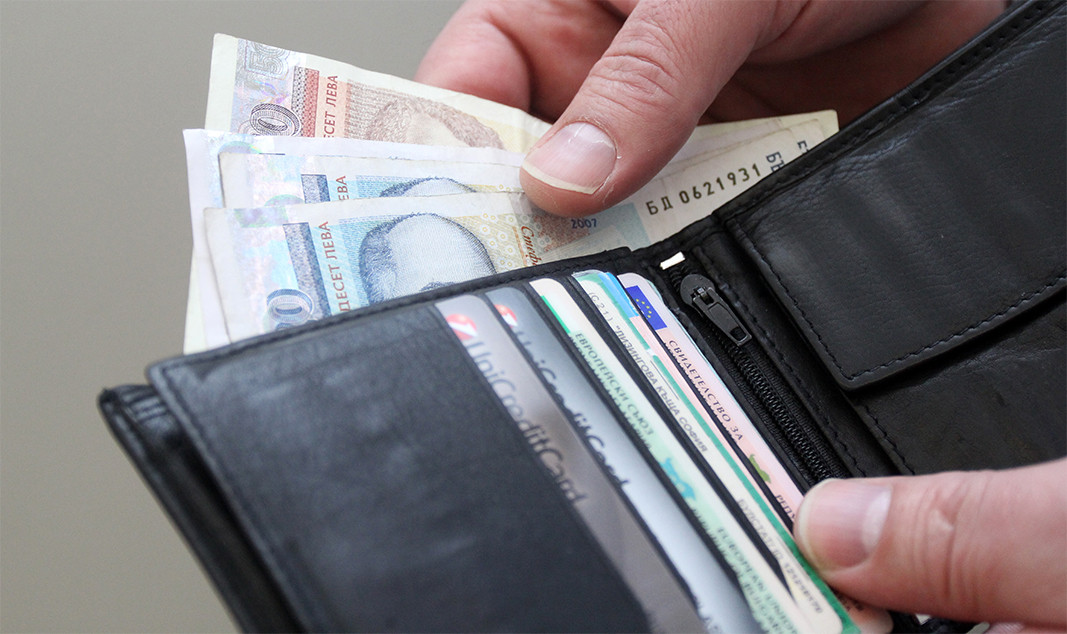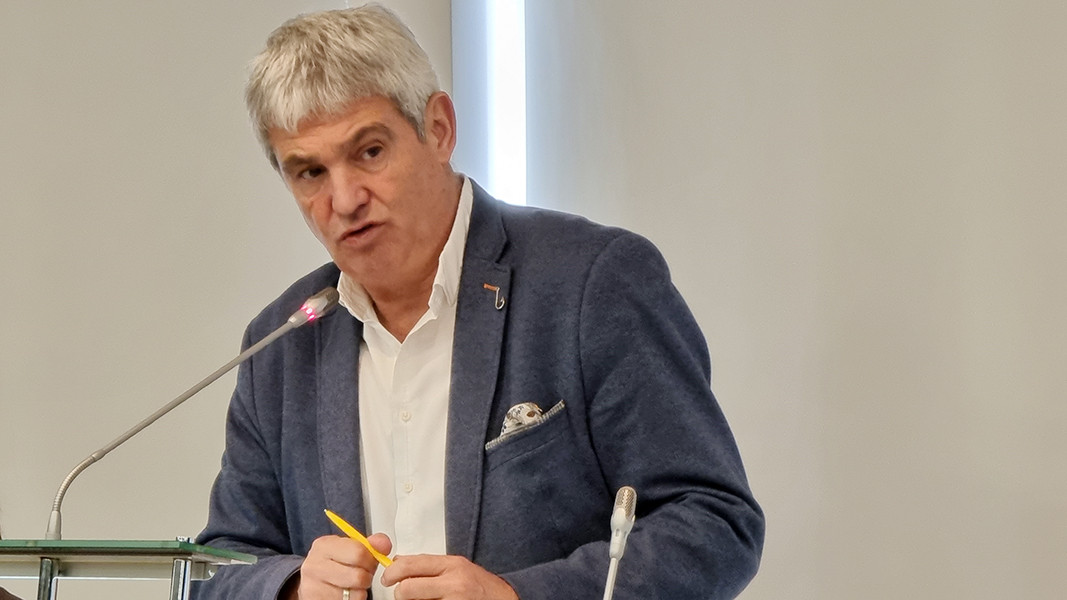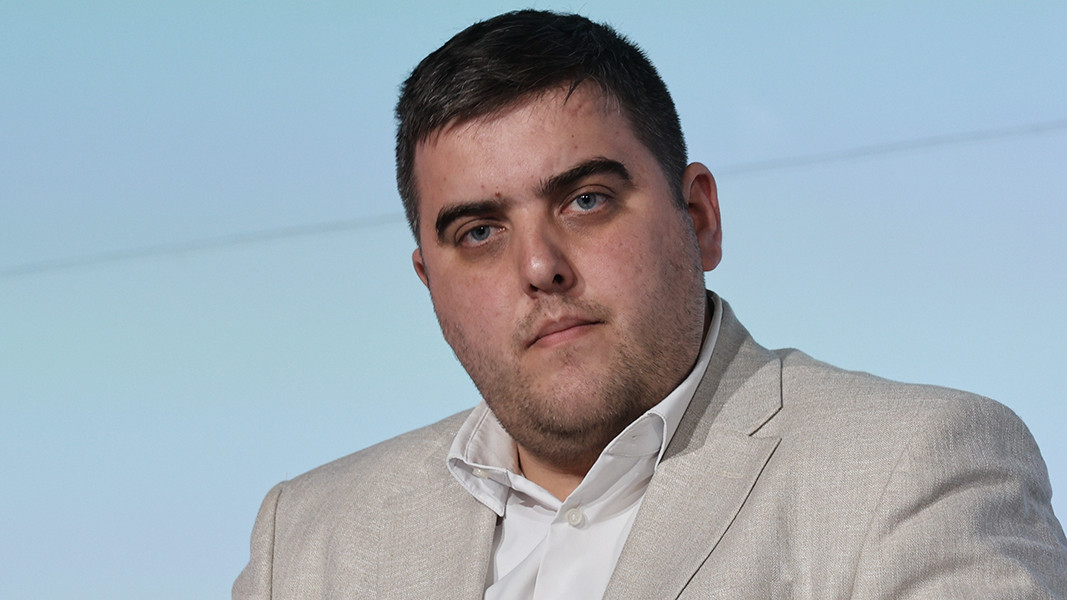“We have a calm market at the moment. But what is worrying people and making them nervous is the fact that incomes are lagging behind,” says Vladimir Ivanov, chairman of the Commodity Exchange and Wholesale Markets State Commission. He says there is a highly competitive environment and things are not that bad – at this time last year there was a well-defined upward price curve, whereas now there is a downward trend in prices, i.e. in 2022 there was quite a lot of stress on the market, while now it is stable. Vladimir Ivanov says that the 100 Leva consumer basket from last year now costs 103 Leva. The conclusion – the tension is rooted in the fact that incomes are lagging behind, and not in market relations.
A survey among 350 companies shows that in 2023, more than half of employers have raised salaries by up to 10%, whereas last year salaries increased by 14-15% in response to the growing inflation. As it turns out, that is not enough and incomes in this country remain the lowest compared to the rest of the EU.

“Bulgaria has the highest prices in view of the fact we have the lowest incomes in the EU, or in other words – with the lowest incomes we have to pay for the highest prices compared to the other countries,” The president of the Confederation of Independent Trade Unions, CITUB, Plamen Dimitrov explained after the CITUB’s Institute for Social and Trade Union Research and Training made public the results of its study on the increase in salaries and the cost of living in Bulgaria in the past three months. Even though prices have stopped growing, and with some commodities have even dipped slightly, on the whole they have remained high, the results show. As usual, the CITUB takes the so-called small consumer basket, or the 20 essential commodities people cannot do without in the household. At the moment, the cost of these monitored commodities in Bulgaria is EUR 56. the rise in the prices of these commodities over one year is 15%, economists say. By way of comparison – the same commodities in Spain cost EUR 50, in Germany EUR 59, and in Romania – EUR 46. Bulgarians with a minimum salary can buy the products from the small basket only 7 times a month. In Spain, this basket can be bought 27 times over with one minimum salary, in Germany – 34. At the same time, in comparison with other countries members of the EU, Bulgaria continues to have the lowest average salary, the CITUB survey says.
“Flour is most expensive in Bulgaria, compared with other countries – EUR 0.92, as compared to EUR 0.70 in Spain, EUR 0.74 in Croatia and EUR 0.80 in Romania,” says Lyuboslav Kostov, expert at the Confederation of Independent Trade Unions in Bulgaria, and goes on:
“We have the third most expensive cow’s milk cheese, with France and Croatia the only countries where it is more expensive. Overall, the difference in prices does not conform with the difference in salaries, much less in productivity of labour.”
The prices in the small consumer basket have doubled since the start of the inflation, while salaries have not gone up at the same rate – the CITUB says, and adds that the inflation rate registered since the beginning of 2021 is 30% - the overall growth rate of the prices of goods and services in Bulgaria. In light of this, the trade union is demanding a minimum raise in salaries of at least 15% in view of the expected 5% inflation rate next year.
“We want our purchasing power to increase in 2024, despite all the worries about inflation coming from external energy factors and the wars that will affect prices, especially during the winter. That is why the 5% inflation which the Ministry of Finance is setting down for next year could prove to be an optimistic forecast.”
Gergana Mancheva
Translated and posted by Milena Daynova
Photos: Pixabay, BGNES, BTA
152 years after the death of the Apostle of Freedom, the personality of Vasil Levski continues to excite Bulgarians, regardless of whether they are in the country or abroad. The Embassy of Bulgaria in Athens, Greece , has extended an invitation to the..
Easter 2020 went down in history with two things. The first was the state of emergency, introduced due to the Covid-19 pandemic that imposed a number of restrictions on us, the consequences of which we are still recovering from. The..
At various times in its existence, the BNR's Directorate of Foreign Language Broadcasts, now known as Radio Bulgaria, the multimedia multilingual platform of Bulgarian National Radio, was more than just a workplace for a number of popular journalists...
Easter 2020 went down in history with two things. The first was the state of emergency, introduced due to the Covid-19 pandemic that..
152 years after the death of the Apostle of Freedom, the personality of Vasil Levski continues to excite Bulgarians, regardless of whether they are in the..

+359 2 9336 661
